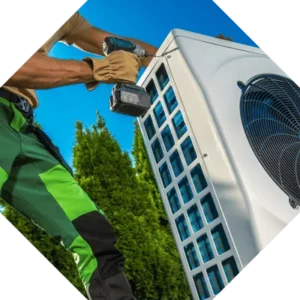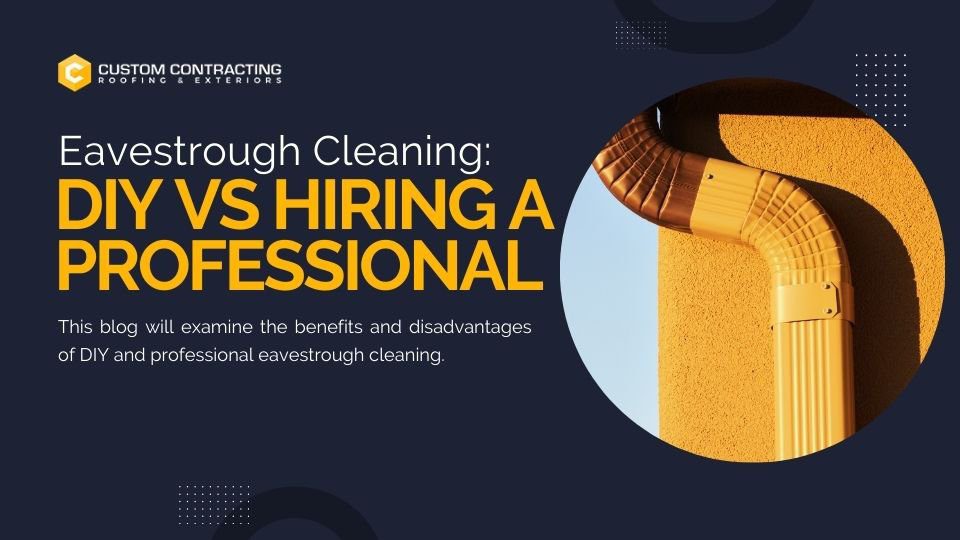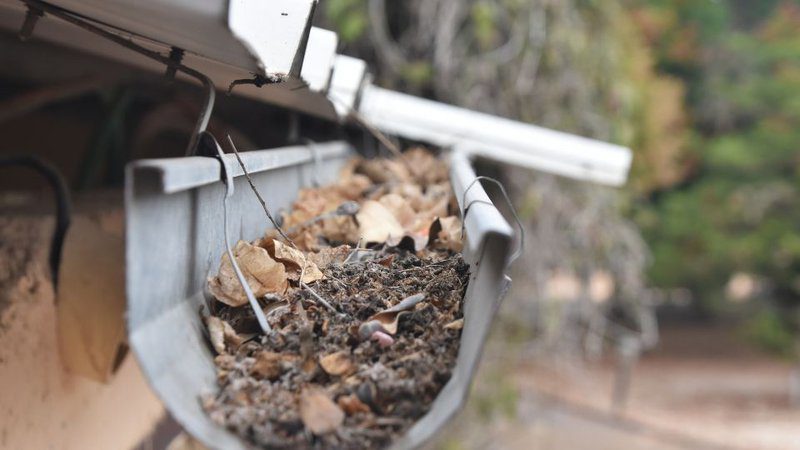📊 Maintenance Schedule
Frequency
Task
Importance
Monthly
Visual inspection
Medium
Quarterly
Clean gutters & downspouts
High
Bi-Annually
Professional inspection
High
Annually
Deep cleaning & repairs
Medium
ribute to your system's efficiency and prevent minor issues from escalating.
📊 Warning Signs Quick Reference
Warning Sign
Severity
Action Needed
Visible damage
🔴 Critical
Immediate repair
Leaks or water stains
🔴 Critical
Emergency service
Sagging or warping
🟡 High
Schedule inspection
Increased energy bills
🟢 Medium
Plan upgrade
### When to Call Professional HVAC Contractors
While DIY maintenance is beneficial, certain tasks require the expertise and specialized tools of professional HVAC contractors. Any work involving refrigerant, electrical components, or complex diagnostics should always be left to certified professionals. For instance, if your AC unit isn't cooling effectively, or your furnace is making unusual noises, these are clear indicators that a professional inspection is needed. Annual tune-ups for both your heating and cooling systems are highly recommended. During these visits, technicians can perform thorough inspections, clean internal components, check refrigerant levels, test electrical connections, and identify potential problems before they lead to costly breakdowns. Attempting complex repairs yourself can be dangerous and may void your warranty, ultimately costing you more in the long run.
### Safety Considerations
Safety should always be your top priority when performing any HVAC maintenance. Before attempting any DIY tasks, always turn off the power to your unit at the thermostat and the circuit breaker. Be cautious when working with sharp components or electrical wiring. If you are unsure about a task or feel uncomfortable, it’s always best to err on the side of caution and call a professional. HVAC systems contain high-voltage components and pressurized refrigerants that can be dangerous if mishandled.
### Cost Comparison
While professional HVAC services come with a cost, viewing them as an investment rather than an expense is crucial. Regular professional maintenance can prevent major breakdowns, extend the lifespan of your system, and ensure it operates at peak energy efficiency, leading to lower utility bills. DIY tasks, while seemingly free, can lead to costly mistakes if not performed correctly. For example, improper cleaning of coils can damage them, and incorrect handling of electrical components can lead to system failure or even fire hazards. Balancing DIY efforts with professional tune-ups is the most cost-effective approach for homeowners, ensuring both immediate savings and long-term system health.
## Choosing HVAC Services in Ingersoll
When it comes to maintaining or repairing your HVAC system, selecting the right professional is paramount. A reliable HVAC contractor ensures your system runs efficiently, safely, and effectively, providing comfort throughout the year. Here’s what homeowners should look for and consider when choosing an HVAC service provider.
### What to Look for in Local Contractors
Start by seeking contractors with a strong local presence and reputation. Look for companies that are licensed, insured, and bonded. This protects you in case of accidents or damages during service. Certifications, such as those from industry organizations like HRAI (Heating, Refrigeration and Air Conditioning Institute of Canada), indicate that technicians are well-trained and adhere to high standards. Check for positive customer reviews and testimonials, particularly from other residents. A company with a history of satisfied local customers is a good sign. Longevity in the business also suggests stability and experience.
### Questions to Ask Potential Service Providers
Before committing to a contractor, ask a few key questions. Inquire about their experience with your specific type of HVAC system and the services you need. Ask for a detailed, written estimate that outlines all costs, including parts and labor. Understand their warranty policies on both parts and services. Ask if they offer emergency services, which can be crucial during extreme weather. Finally, inquire about their maintenance plans; many reputable companies offer annual service agreements that can save you money and ensure regular upkeep of your system.
### Red Flags to Avoid
Be wary of contractors who offer unusually low bids, as this could indicate subpar work or hidden costs. Avoid those who pressure you into immediate decisions or demand full payment upfront. A reputable contractor will provide a clear timeline and payment schedule. Be cautious of companies that are unwilling to provide references or proof of insurance and licensing. Lastly, if a contractor suggests replacing your entire system without a thorough inspection or clear explanation, seek a second opinion. For reliable HVAC services, trust Custom Contracting. [Link to Ingersoll HVAC Landing Page 1]
### Internal Links to Custom Contracting's HVAC Services
For all your heating and cooling needs, explore Custom Contracting’s comprehensive [HVAC service offerings](https://www.customcontracting.com/ingersoll-hvac-services). Whether you need routine maintenance, urgent repairs, or a new system installation, our expert team is ready to assist. Learn more about our [heating solutions](https://www.customcontracting.com/ingersoll-heating-services) and ensure your home stays warm through the coldest winters. Discover our specialized [cooling services](https://www.customcontracting.com/ingersoll-cooling-services) to keep your home comfortable during the humid summer months. We are committed to providing top-quality [HVAC maintenance](https://www.customcontracting.com/ingersoll-hvac-maintenance) to extend the life of your system and optimize its performance.
## FAQ Section
Here are some common questions homeowners ask about HVAC maintenance, with local-specific answers to help you keep your system running smoothly.
### Q1: How often should I have my HVAC system professionally maintained?
For optimal performance and longevity, it is recommended that homeowners have their HVAC system professionally maintained twice a year: once in the spring for cooling and once in the fall for heating. Given the extreme seasonal temperatures, these check-ups ensure your system is ready for summer heat and winter cold, preventing breakdowns and maximizing efficiency.
### Q2: What are the typical costs associated with HVAC maintenance?
The cost of HVAC maintenance can vary depending on the service and contractor. A basic tune-up for an AC or furnace typically ranges from $100 to $250. More comprehensive services or repairs will cost more. Many local HVAC companies offer maintenance plans or service agreements that can reduce costs and include benefits like priority service and discounts on repairs. Always get a detailed quote before work begins.
### Q3: Can I really save money on energy bills with regular HVAC maintenance?
Absolutely. Regular HVAC maintenance leads to significant energy savings. A well-maintained system operates more efficiently, consuming less energy. For example, a dirty air filter can increase energy consumption by 5% to 15%. These inefficiencies add up, leading to higher utility bills. By ensuring your system is clean and running optimally, you reduce your energy footprint and save money, especially during peak heating and cooling seasons.
### Q4: What are the signs that my HVAC system needs professional attention?
Several signs indicate your HVAC system might need professional attention: unusual noises (grinding, squealing, banging), strange odors (burning, musty), reduced airflow, inconsistent temperatures, a sudden increase in energy bills, or constant cycling. If you notice any of these issues, especially during extreme weather, contact a professional HVAC technician promptly.
### Q5: How long do HVAC systems typically last?
The lifespan of an HVAC system can vary, but generally, furnaces last 15-20 years, and air conditioners last 10-15 years. This depends on installation quality, maintenance frequency, and climate demands. Regular professional maintenance significantly extends system life, delaying costly replacements.
Ready to Get Started?
Contact Custom Contracting today for expert advice and a free, no-obligation estimate.
Get Your Free Estimate
Related Articles
Continue reading more helpful tips and insights
 HVAC Blog
HVAC BlogComplete HVAC Maintenance Guide for Hamilton Homeowners: Seasonal Tips and Expert Advice
Hamilton HVAC maintenance guide with seasonal tips, expert advice, and local climate solutions. Keep your heating and cooling systems efficient year-round with professional insights.
August 6, 2025 HVAC Blog
HVAC BlogComplete HVAC Maintenance Guide for Stratford Homeowners: Seasonal Tips and Expert Advice
Comprehensive HVAC maintenance guide for Stratford homeowners. Get seasonal tips, expert advice, and learn how to optimize your heating and cooling systems for Stratford's unique climate.
July 7, 2025 HVAC Blog
HVAC BlogComplete HVAC Maintenance Guide for Woodstock Homeowners: Seasonal Tips and Expert Advice
Expert HVAC maintenance guide for Woodstock homeowners. Seasonal tips, local considerations, and professional advice to optimize your heating and cooling system year-round.
July 5, 2025Ready to Start Your Project?
Contact Custom Contracting today for expert advice and a free, no-obligation estimate on your next project.
Get Your Free Estimate60% OFFInstallationLimited Time Offer!⏰ Ends October 31, 2025✅ All Roofing, Siding, Windows & MoreGet Your FREE Estimate!
Don't miss this 60% OFF offer! Contact us today.
📍 Visit Us
45 Worthington Dr Unit H
Brantford, ON N3T 5M1
✉️ Email Us
infor@customcontracting.ca📋 Request Your Free Quote
| Frequency | Task | Importance |
|---|---|---|
| Monthly | Visual inspection | Medium |
| Quarterly | Clean gutters & downspouts | High |
| Bi-Annually | Professional inspection | High |
| Annually | Deep cleaning & repairs | Medium |
📊 Warning Signs Quick Reference
Warning Sign
Severity
Action Needed
Visible damage
🔴 Critical
Immediate repair
Leaks or water stains
🔴 Critical
Emergency service
Sagging or warping
🟡 High
Schedule inspection
Increased energy bills
🟢 Medium
Plan upgrade
### When to Call Professional HVAC Contractors
While DIY maintenance is beneficial, certain tasks require the expertise and specialized tools of professional HVAC contractors. Any work involving refrigerant, electrical components, or complex diagnostics should always be left to certified professionals. For instance, if your AC unit isn't cooling effectively, or your furnace is making unusual noises, these are clear indicators that a professional inspection is needed. Annual tune-ups for both your heating and cooling systems are highly recommended. During these visits, technicians can perform thorough inspections, clean internal components, check refrigerant levels, test electrical connections, and identify potential problems before they lead to costly breakdowns. Attempting complex repairs yourself can be dangerous and may void your warranty, ultimately costing you more in the long run.
### Safety Considerations
Safety should always be your top priority when performing any HVAC maintenance. Before attempting any DIY tasks, always turn off the power to your unit at the thermostat and the circuit breaker. Be cautious when working with sharp components or electrical wiring. If you are unsure about a task or feel uncomfortable, it’s always best to err on the side of caution and call a professional. HVAC systems contain high-voltage components and pressurized refrigerants that can be dangerous if mishandled.
### Cost Comparison
While professional HVAC services come with a cost, viewing them as an investment rather than an expense is crucial. Regular professional maintenance can prevent major breakdowns, extend the lifespan of your system, and ensure it operates at peak energy efficiency, leading to lower utility bills. DIY tasks, while seemingly free, can lead to costly mistakes if not performed correctly. For example, improper cleaning of coils can damage them, and incorrect handling of electrical components can lead to system failure or even fire hazards. Balancing DIY efforts with professional tune-ups is the most cost-effective approach for homeowners, ensuring both immediate savings and long-term system health.
## Choosing HVAC Services in Ingersoll
When it comes to maintaining or repairing your HVAC system, selecting the right professional is paramount. A reliable HVAC contractor ensures your system runs efficiently, safely, and effectively, providing comfort throughout the year. Here’s what homeowners should look for and consider when choosing an HVAC service provider.
### What to Look for in Local Contractors
Start by seeking contractors with a strong local presence and reputation. Look for companies that are licensed, insured, and bonded. This protects you in case of accidents or damages during service. Certifications, such as those from industry organizations like HRAI (Heating, Refrigeration and Air Conditioning Institute of Canada), indicate that technicians are well-trained and adhere to high standards. Check for positive customer reviews and testimonials, particularly from other residents. A company with a history of satisfied local customers is a good sign. Longevity in the business also suggests stability and experience.
### Questions to Ask Potential Service Providers
Before committing to a contractor, ask a few key questions. Inquire about their experience with your specific type of HVAC system and the services you need. Ask for a detailed, written estimate that outlines all costs, including parts and labor. Understand their warranty policies on both parts and services. Ask if they offer emergency services, which can be crucial during extreme weather. Finally, inquire about their maintenance plans; many reputable companies offer annual service agreements that can save you money and ensure regular upkeep of your system.
### Red Flags to Avoid
Be wary of contractors who offer unusually low bids, as this could indicate subpar work or hidden costs. Avoid those who pressure you into immediate decisions or demand full payment upfront. A reputable contractor will provide a clear timeline and payment schedule. Be cautious of companies that are unwilling to provide references or proof of insurance and licensing. Lastly, if a contractor suggests replacing your entire system without a thorough inspection or clear explanation, seek a second opinion. For reliable HVAC services, trust Custom Contracting. [Link to Ingersoll HVAC Landing Page 1]
### Internal Links to Custom Contracting's HVAC Services
For all your heating and cooling needs, explore Custom Contracting’s comprehensive [HVAC service offerings](https://www.customcontracting.com/ingersoll-hvac-services). Whether you need routine maintenance, urgent repairs, or a new system installation, our expert team is ready to assist. Learn more about our [heating solutions](https://www.customcontracting.com/ingersoll-heating-services) and ensure your home stays warm through the coldest winters. Discover our specialized [cooling services](https://www.customcontracting.com/ingersoll-cooling-services) to keep your home comfortable during the humid summer months. We are committed to providing top-quality [HVAC maintenance](https://www.customcontracting.com/ingersoll-hvac-maintenance) to extend the life of your system and optimize its performance.
## FAQ Section
Here are some common questions homeowners ask about HVAC maintenance, with local-specific answers to help you keep your system running smoothly.
### Q1: How often should I have my HVAC system professionally maintained?
For optimal performance and longevity, it is recommended that homeowners have their HVAC system professionally maintained twice a year: once in the spring for cooling and once in the fall for heating. Given the extreme seasonal temperatures, these check-ups ensure your system is ready for summer heat and winter cold, preventing breakdowns and maximizing efficiency.
### Q2: What are the typical costs associated with HVAC maintenance?
The cost of HVAC maintenance can vary depending on the service and contractor. A basic tune-up for an AC or furnace typically ranges from $100 to $250. More comprehensive services or repairs will cost more. Many local HVAC companies offer maintenance plans or service agreements that can reduce costs and include benefits like priority service and discounts on repairs. Always get a detailed quote before work begins.
### Q3: Can I really save money on energy bills with regular HVAC maintenance?
Absolutely. Regular HVAC maintenance leads to significant energy savings. A well-maintained system operates more efficiently, consuming less energy. For example, a dirty air filter can increase energy consumption by 5% to 15%. These inefficiencies add up, leading to higher utility bills. By ensuring your system is clean and running optimally, you reduce your energy footprint and save money, especially during peak heating and cooling seasons.
### Q4: What are the signs that my HVAC system needs professional attention?
Several signs indicate your HVAC system might need professional attention: unusual noises (grinding, squealing, banging), strange odors (burning, musty), reduced airflow, inconsistent temperatures, a sudden increase in energy bills, or constant cycling. If you notice any of these issues, especially during extreme weather, contact a professional HVAC technician promptly.
### Q5: How long do HVAC systems typically last?
The lifespan of an HVAC system can vary, but generally, furnaces last 15-20 years, and air conditioners last 10-15 years. This depends on installation quality, maintenance frequency, and climate demands. Regular professional maintenance significantly extends system life, delaying costly replacements.
Ready to Get Started?
Contact Custom Contracting today for expert advice and a free, no-obligation estimate.
Get Your Free Estimate
| Warning Sign | Severity | Action Needed |
|---|---|---|
| Visible damage | 🔴 Critical | Immediate repair |
| Leaks or water stains | 🔴 Critical | Emergency service |
| Sagging or warping | 🟡 High | Schedule inspection |
| Increased energy bills | 🟢 Medium | Plan upgrade |
Ready to Get Started?
Contact Custom Contracting today for expert advice and a free, no-obligation estimate. Get Your Free Estimate
Related Articles
Continue reading more helpful tips and insights

Complete HVAC Maintenance Guide for Hamilton Homeowners: Seasonal Tips and Expert Advice
Hamilton HVAC maintenance guide with seasonal tips, expert advice, and local climate solutions. Keep your heating and cooling systems efficient year-round with professional insights.

Complete HVAC Maintenance Guide for Stratford Homeowners: Seasonal Tips and Expert Advice
Comprehensive HVAC maintenance guide for Stratford homeowners. Get seasonal tips, expert advice, and learn how to optimize your heating and cooling systems for Stratford's unique climate.

Complete HVAC Maintenance Guide for Woodstock Homeowners: Seasonal Tips and Expert Advice
Expert HVAC maintenance guide for Woodstock homeowners. Seasonal tips, local considerations, and professional advice to optimize your heating and cooling system year-round.
Ready to Start Your Project?
Contact Custom Contracting today for expert advice and a free, no-obligation estimate on your next project.
Get Your Free EstimateGet Your FREE Estimate!
Don't miss this 60% OFF offer! Contact us today.
📍 Visit Us
45 Worthington Dr Unit H
Brantford, ON N3T 5M1
✉️ Email Us
infor@customcontracting.ca

